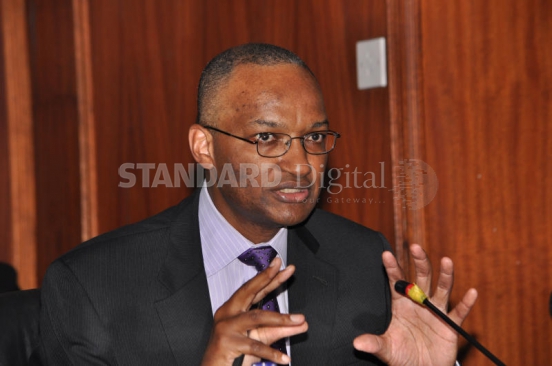×
The Standard e-Paper
Home To Bold Columnists

NAIROBI: President Uhuru Kenyatta has formally appointed Dr Patrick Njoroge as the ninth boss at the Central Bank of Kenya (CBK), as the public purse holder institution enters into a new era.
CBK Friday posted that the President had made the appointment effective June 19. Njoroge takes up the job, after quitting as a senior adviser at the International Monetary Fund, at a time when the Kenyan currency is at its lowest in nearly four years against the US dollar.